Kellogg’s is an American institution that’s also popular worldwide. Their breakfast products are staples for families of all kinds, and although you were probably raised on their cereals (and maybe still eat them today), some facts may surprise you. From details about the company’s founding to interesting stats and stories, here are 20 things you didn’t know about Kellogg’s.
Kellogg’s was founded in 1906
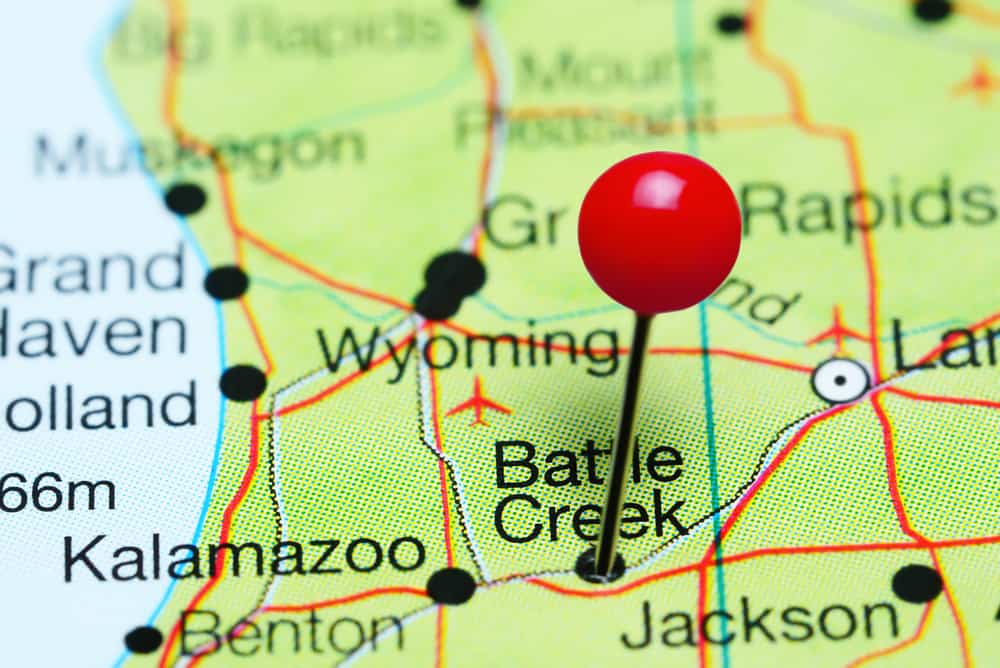
Kellogg’s continues to keep its brand fresh through new products and acquisitions, but it’s actually a very old company. Kellogg’s was founded back in 1906 in Battle Creek, Michigan, by Will Keith Kellogg, better known as W.K. Kellogg.
W.K. Kellogg was a sanitarium bookkeeper

You might think the founder of Kellogg’s had a background in the food & beverage industry, but prior to establishing the now-famous company, W.K. Kellogg was actually the bookkeeper for Battle Creek Sanitarium, a world-famous wellness resort. Kellogg created his first cereal alongside his brother, Battle Creek Superintendent John Harvey Kellogg, who had been searching for a healthy, wheat-based meal for patients.
Their first cereal was invented by accident
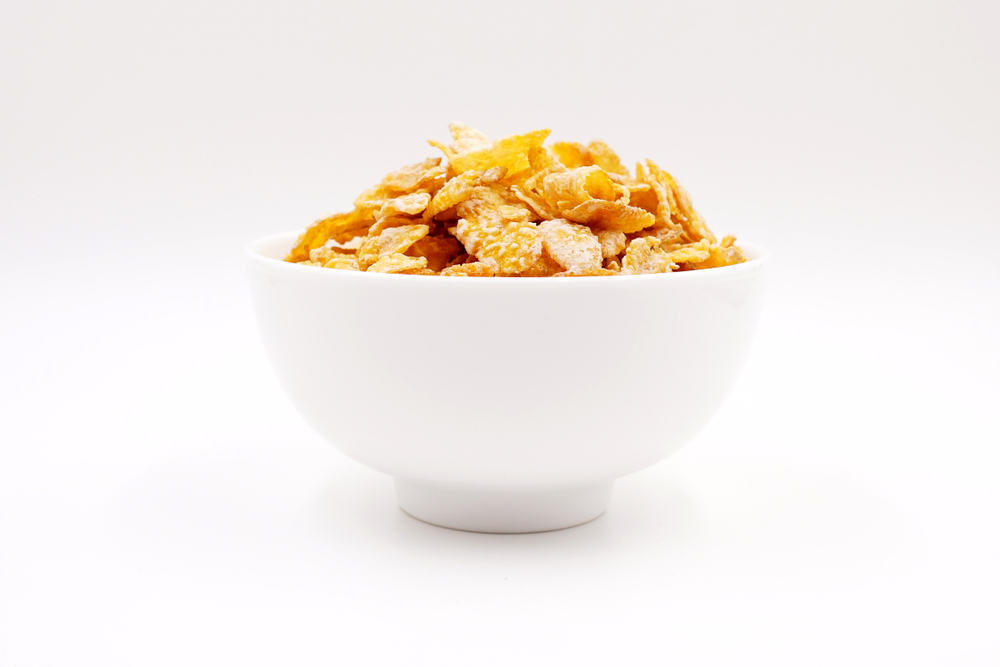
One day in 1894, a Battle Creek Sanitarium employee accidently left out a batch of wheat dough overnight. In an attempt to salvage the dry dough, the brothers rolled it out, but instead of becoming a flat sheet, the dough flaked, and they decided to bake it until crispy. This new product — dubbed “corn flakes” — fulfilled the desire to find a wheat-based breakfast and also fit with the patients’ diet, as most of them were Seventh-Day Adventist vegetarians.
Corn Flakes tore the brothers apart
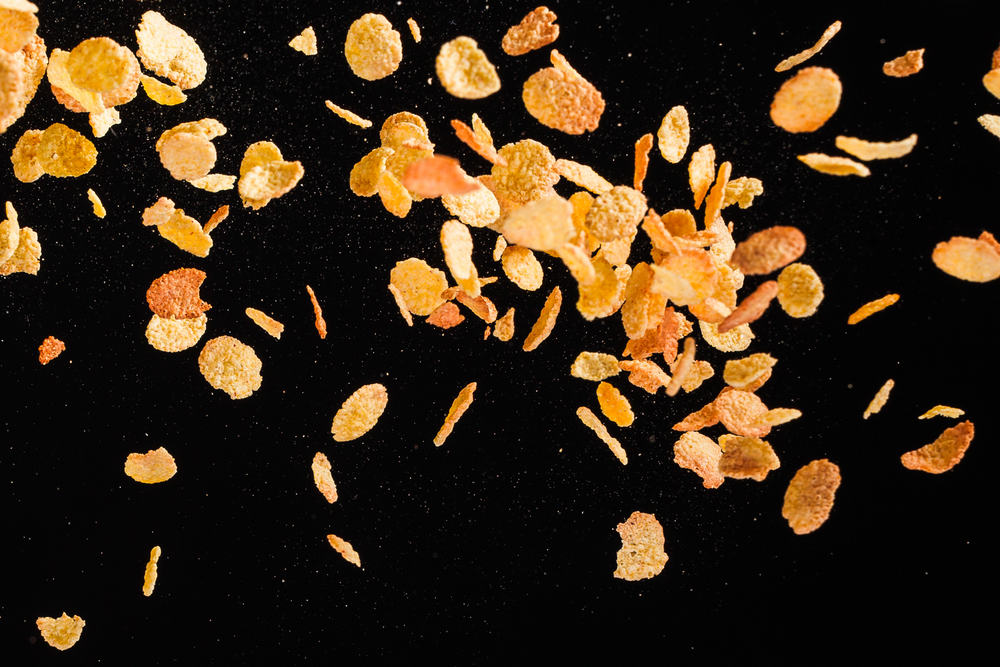
Corn Flakes were a hit amongst the population of Battle Creek Sanitarium, with some patients requesting the cereal by mail order after they returned home. As a result, Will wanted to go public with the new product but big bro forbade it. So Will, who claimed to have been constantly tormented by John since childhood, split from his brother and founded the Battle Creek Toasted Corn Flake Company in 1906.
The brothers were involved in a notorious, lengthy legal battle
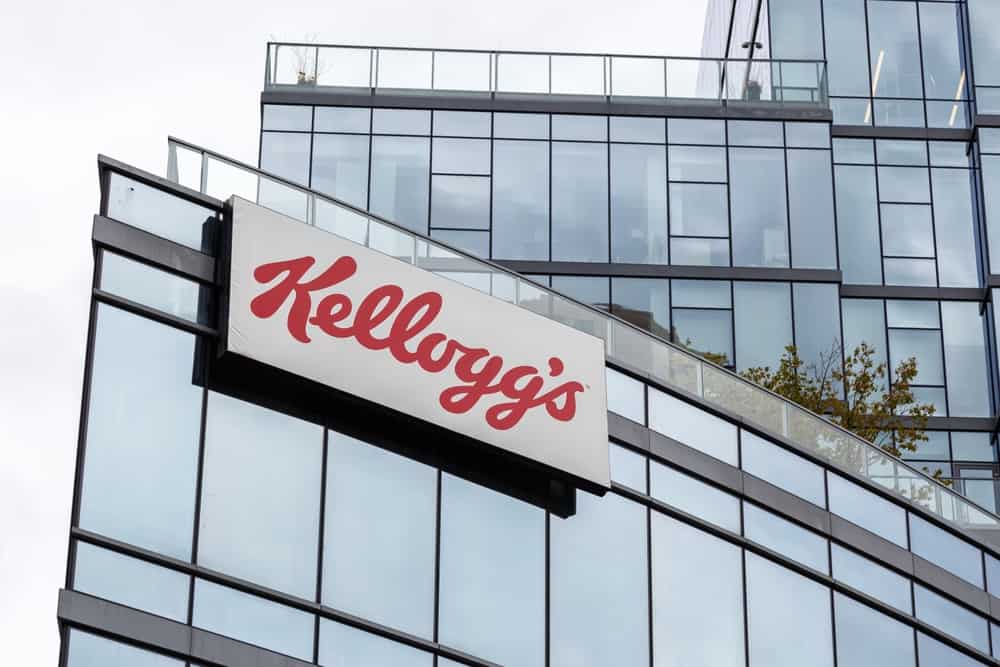
The brothers’ disagreement was more than a simple sibling rivalry, and the two became embroiled in a legal battle over the rights to the Kellogg name. It took a decade to resolve Kellogg v. Kellogg, during which time hundreds of thousands of cases of Corn Flakes were produced and distributed daily. The Kellogg name became synonymous with the cereal, which led to Will eventually emerging triumphant and changing the name of his business to the Kellogg Company in 1922.
Kellogg’s once encouraged women to wink at grocery store employees

When Corn Flakes first debuted publicly, Kellogg’s sent samples to supermarkets around the country. But instead of having the stores set up little tables to give out the new cereal, Kellogg’s advertising campaign encouraged shoppers (specifically women) to “[G]ive the grocer a wink and see what you get!” Not only was this an odd request for the customer, but we’re guessing it creeped out at least a few grocers who were unaware of the campaign.
Battle Creek created a second cereal empire
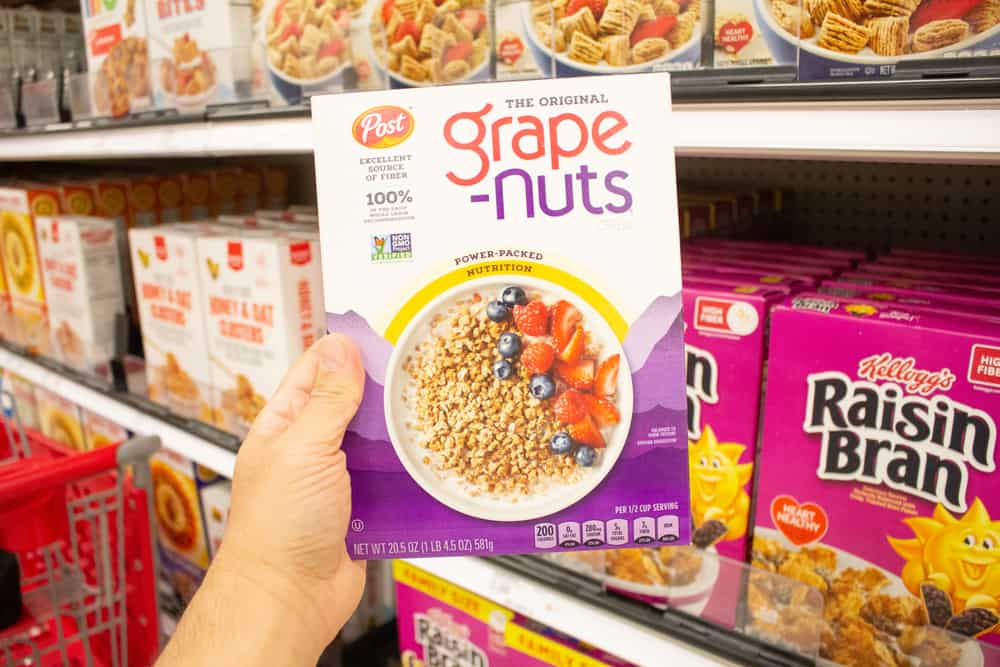
In 1891, inventor and real estate developer C.W. Post was in rough shape. After coping with chronic illnesses and suffering numerous nervous breakdowns, Post checked into Battle Creek Sanitarium and quickly noticed how popular the Kellogg Brothers’ culinary creations were becoming. He copycatted several recipes (including concocting the now-famous Grape-Nuts cereal) and in 1895, established the Postum Cereal Co., which is now known as Post Consumer Brands — the creators of everything from Bran Flakes and Honey Bunches of Oats to Cocoa and Fruity Pebbles. Further following in the Kelloggs’ footsteps, Post also founded La Vita Inn, his very own sanitarium in Battle Creek!
Kellogg’s was the first company to offer prizes with cereal
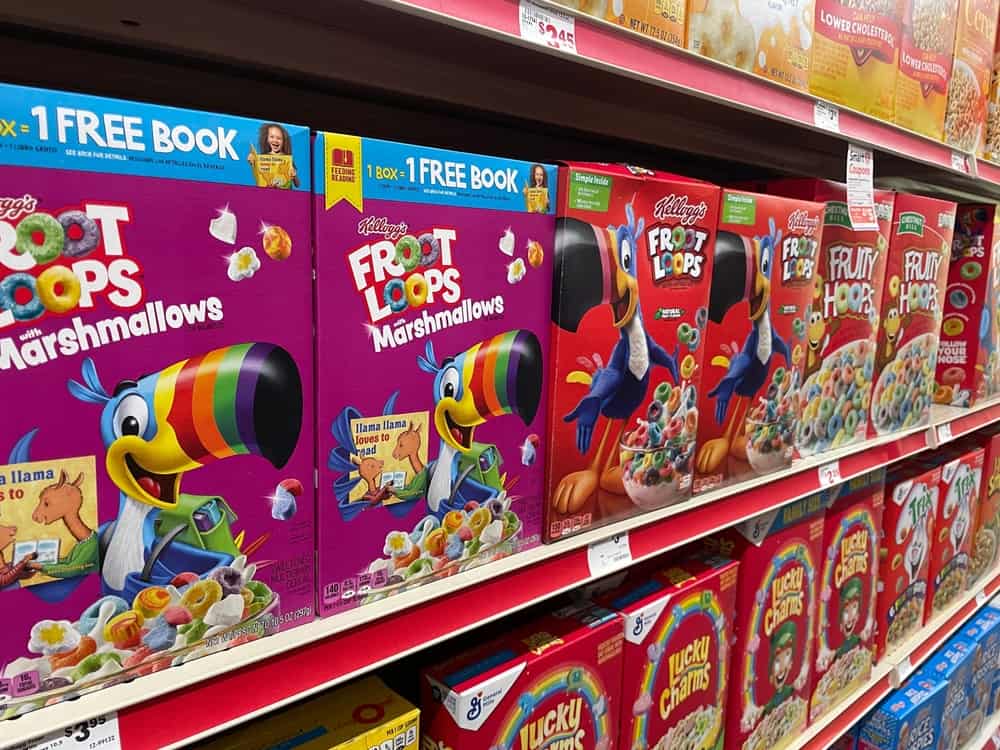
Searching for prizes in boxes of cereal was a highlight of our childhood, and we have W.K. Kellogg to thank for that…sort of. The cereal magnate was the first person to use prizes as part of a marketing campaign, although initially, consumers were given the gift (the first one being a copy of The Funny Jungleland Moving Pictures Book) upon purchase of two boxes of Corn Flakes. The actual insertion of prizes in the boxes would come courtesy of Cracker Jack a few years later, in 1912, and the idea would eventually be replicated by Kellogg’s and nearly every major cereal brand.
Kellogg’s introduced a 30-hour work week
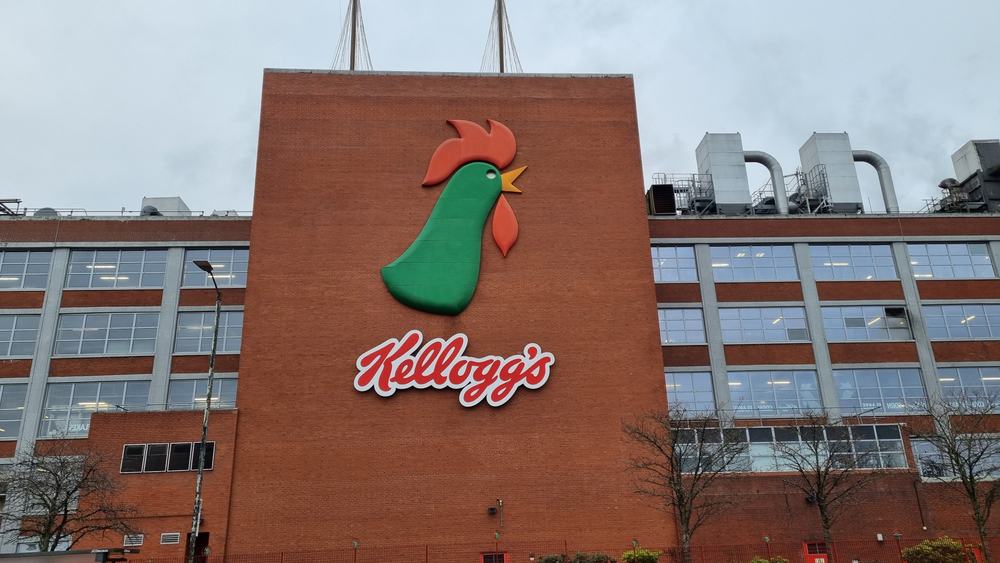
Studies today suggest a shorter work week could increase worker productivity and satisfaction, but it was Kellogg who pioneered this practice almost a century ago. To help Americans cope with the Great Depression, Kellogg’s debuted a 30-hour workweek in 1930, which consisted of five 6-hour workdays. Not only did this provide some relief to factory workers, but it allowed Kellogg’s to staff an additional shift of workers, supplying much-needed jobs when many Americans were unemployed. Kellogg’s also gave its workers a 12.5% pay raise! The 30-hour work week endured after World War II ended, and remained in place at some locations until 1980.
Kellogg’s pioneered the nutrition label
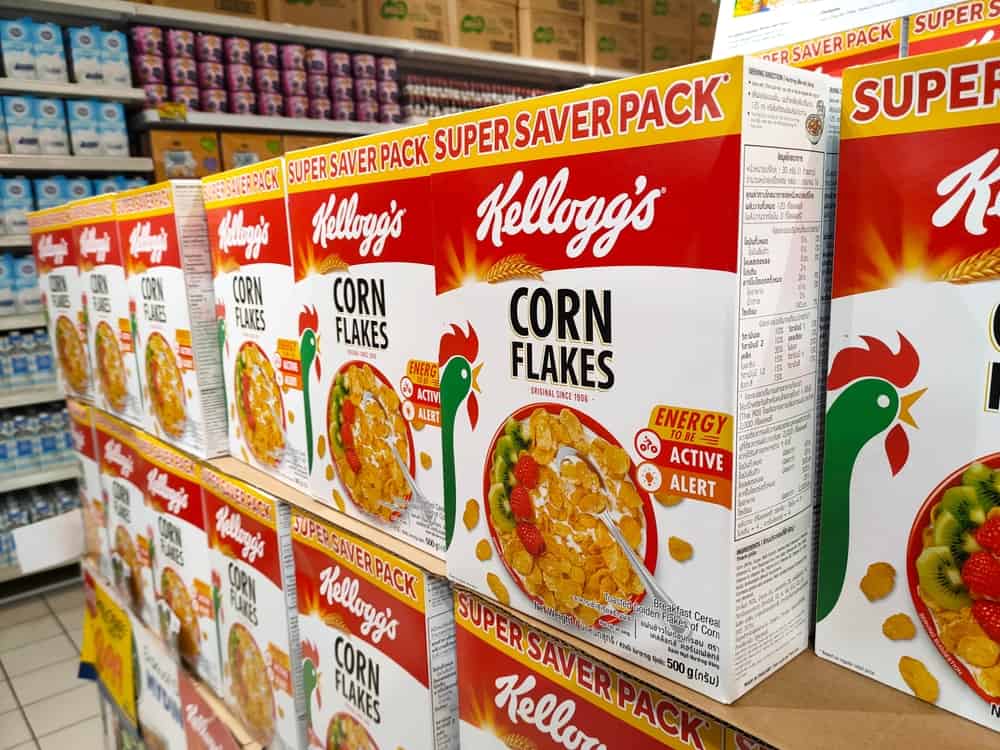
Nutrition facts didn’t become a requirement until the passage of the Nutrition Labeling and Education Act (NLEA) of 1990 — which was a full 60 years after Kellogg’s pioneered the practice! The company was the first to introduce any sort of nutrition messages, recipes, or related product information, and they voluntarily added nutrition labels 10 years later, which was way back in 1940.
Kellogg’s created the Pop-Tart
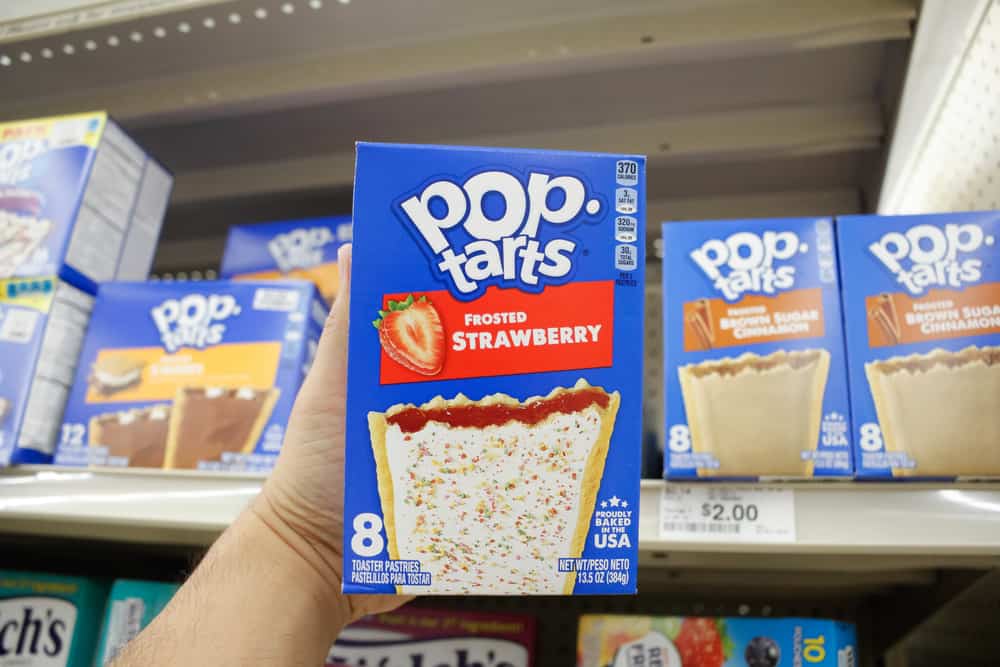
You wouldn’t know it by the logo-less box, but Pop-Tarts were invented and are still owned and produced by Kellogg’s. Post was actually the first to announce their plans to release a dehydrated, toastable pastry sealed in foil, but after hearing that news, Kellogg’s rushed into production of their own product and beat Post to the punch. Kellogg’s originally called their creation Fruit Scones but changed the name as a nod to the Pop Art movement.
Kellogg’s grew so large they had to split
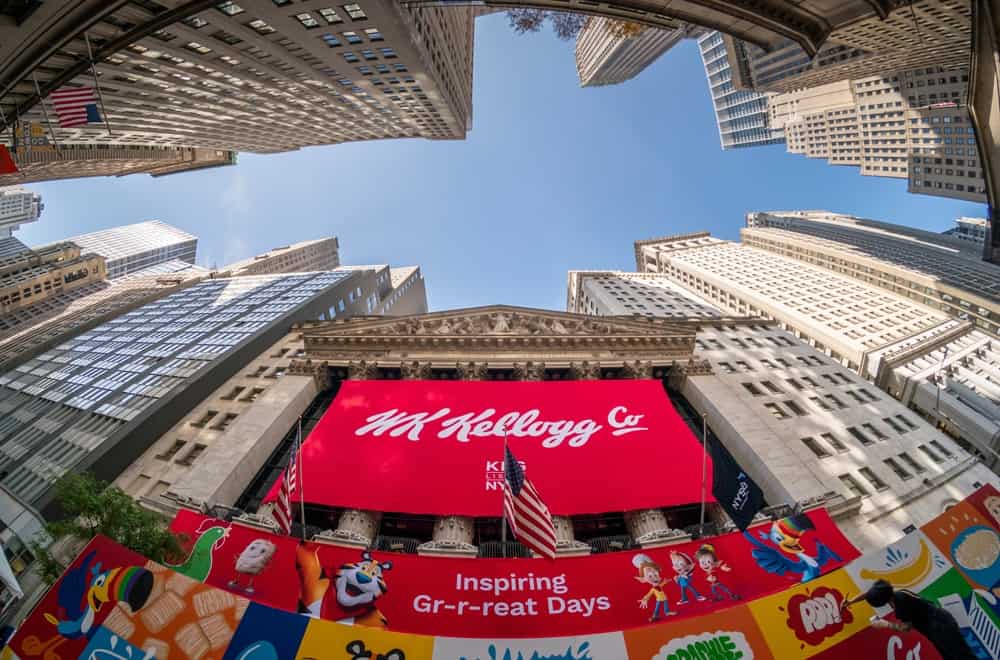
Kellogg’s is no longer a single organization, as the company expanded so much in their first century that they split into two separate brands on October 2, 2023. A multinational called Kellanova now handles their non-cereal products (as well as cereal production and distribution outside of North America) and the W.K. Kellogg Co owns the entire cereal roster, which includes All-Bran, Apple Jacks, Corn Flakes, Corn Pops, Crispix, Froot Loops, Frosted Flakes, Frosted Mini Wheats, Honey Smacks, Raisin Bran, Rice Krispies, Smart Start, and Special K, among others.
They’ve created or acquired a surprising number of other brands
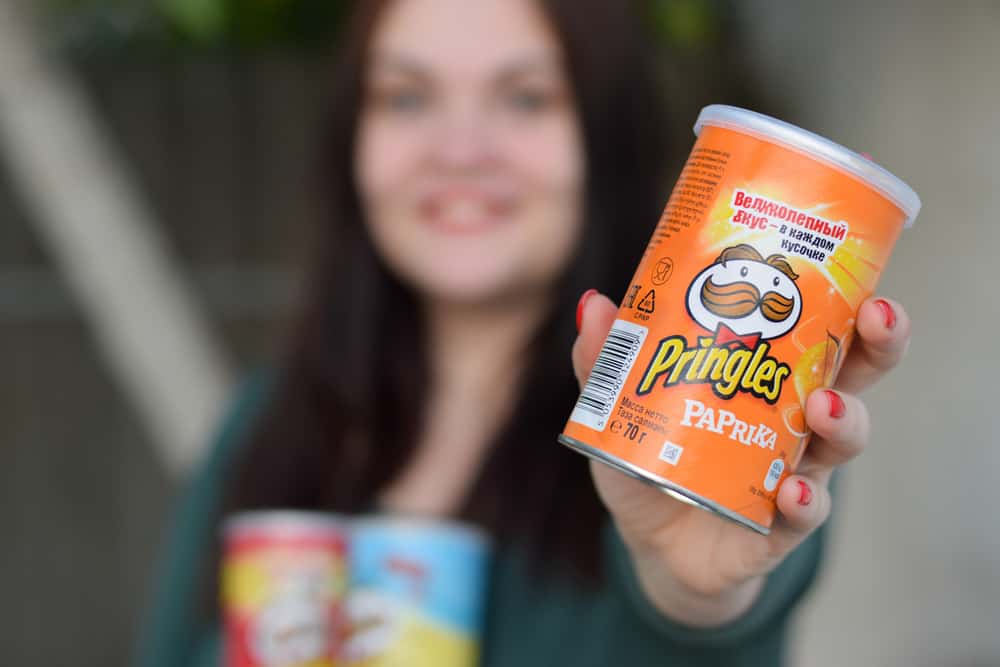
Even if you can name most of Kellogg’s cereals, that’s still just a drop in the bowl. In addition to the W.K. Kellogg Co owning Bear Naked, Kashi, and all the aforementioned cereals, the Kellanova umbrella includes Cheez-It, Club Crackers, Eggo, Gardenburger, Morningstar Farms, Nutri-Grain, Pop-Tarts, Pringles, RXBAR, and Toasteds. And that doesn’t even include brands they acquired but have since sold, like Famous Amos, Keebler, and Little Brownie Bakers (makers of Girl Scout Cookies).
They’ve released some truly odd cereals
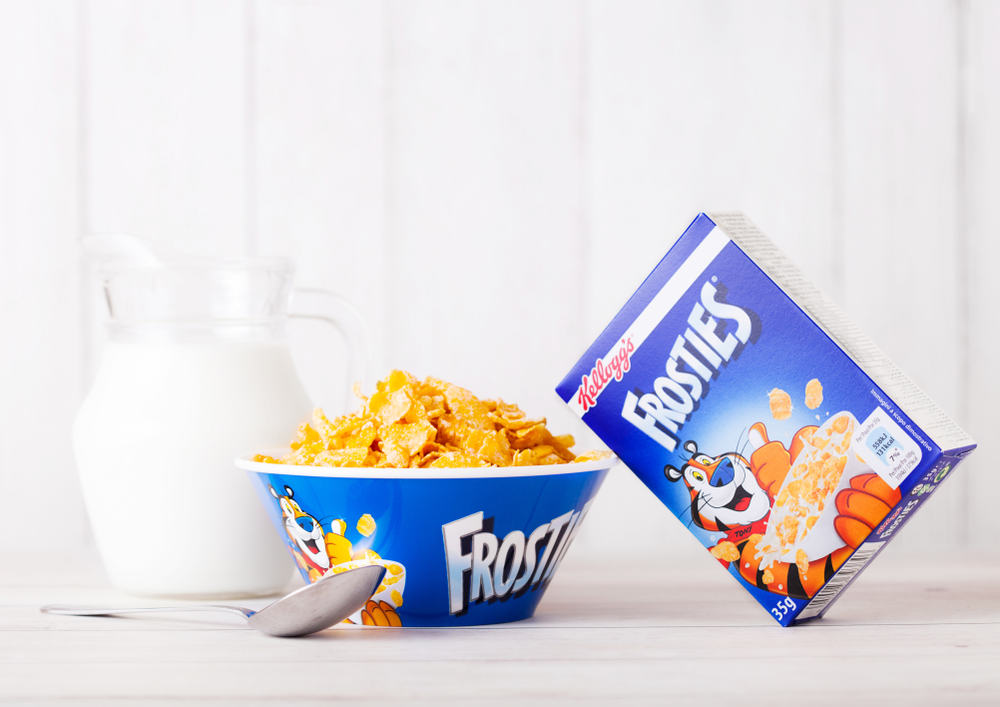
Kellogg’s says their Frosted Flakes are “GR-R-REAT!” but their attempt at copying Cheerios? That cereal is just OK…at least according to the name: OKs. And this isn’t the oddest cereal released by Kellogg’s. They’ve also had Graham Crackos, Kream Krunch, Cinnamon Mini Buns, Corn Flakes with Instant Bananas, Crunchy Loggs, and one that was just called Concentrate.
Kellogg’s now has gluten-free cereals

If you’re sensitive to gluten, Kellogg’s has you covered—with a catch. In recent years, the company has rolled out gluten-free versions of some of their most popular cereals like Corn Flakes, Raisin Bran, Rice Krispies, and Special K, but most are only available outside of the U.S. In the States, you can still get Gluten Free Corn Flakes, but Gluten Free Rice Krispies have been discontinued.
Kellogg’s held a royal warrant that recently expired
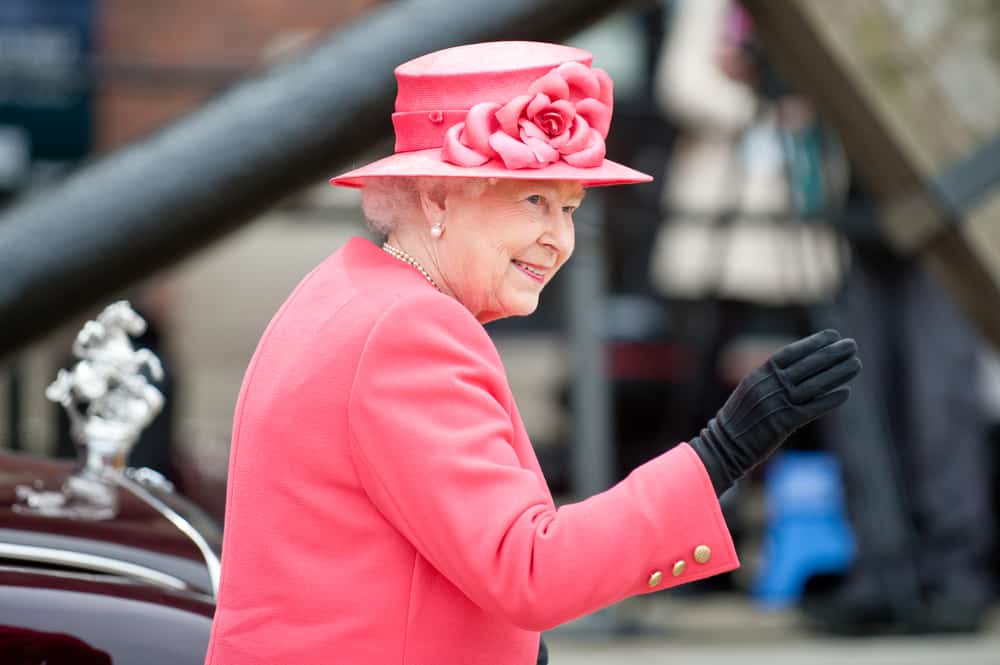
Royal warrants of appointment are distinguished designations granted to companies that supply goods or services to royal families. Kellogg’s held a royal warrant for a century because not only did Queen Elizabeth II favor their products, but so did her father and predecessor, King George VI. And it wasn’t just for show — the Queen really did enjoy Kellogg’s cereal, as she started most days with a bowl of Special K and received special deliveries directly from a U.K. factory. The royal warrant expired upon the Queen’s death in 2022, but King Charles III has signaled his continued support of the brand.
Kellogg’s is incredibly popular worldwide
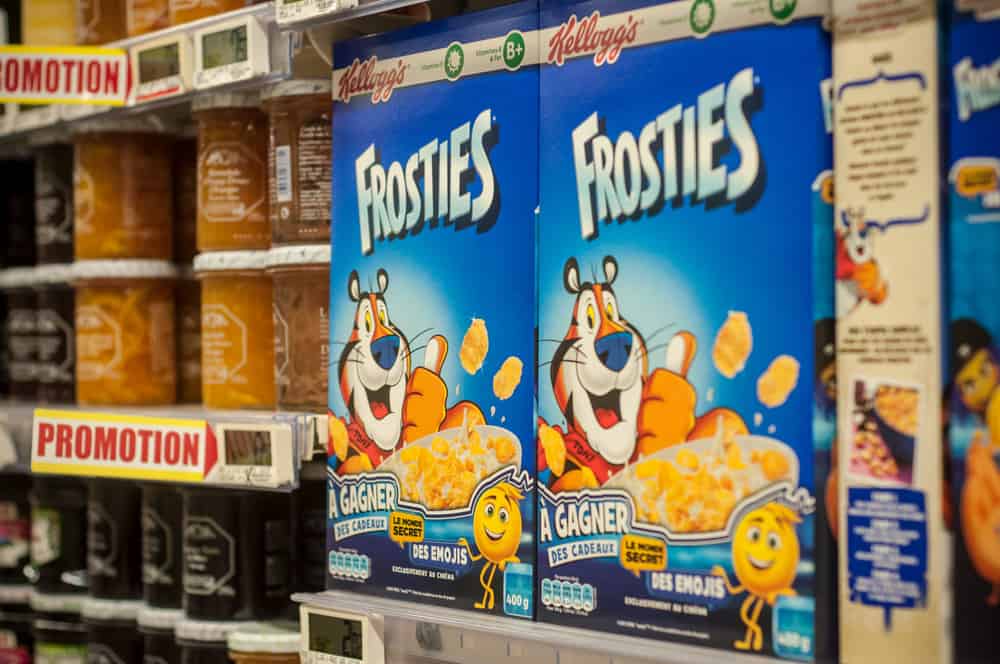
Kellogg’s is one of the most popular cereal brands in the U.S. and the same is true around the globe. Not only are Kellogg’s products available for purchase in 180 countries, but they are also produced in 18 different nations. In total, according to a statistic from 2022, Kellogg’s makes about a million boxes of cereal every single day.
Kellogg’s has set sustainability & wellness goals
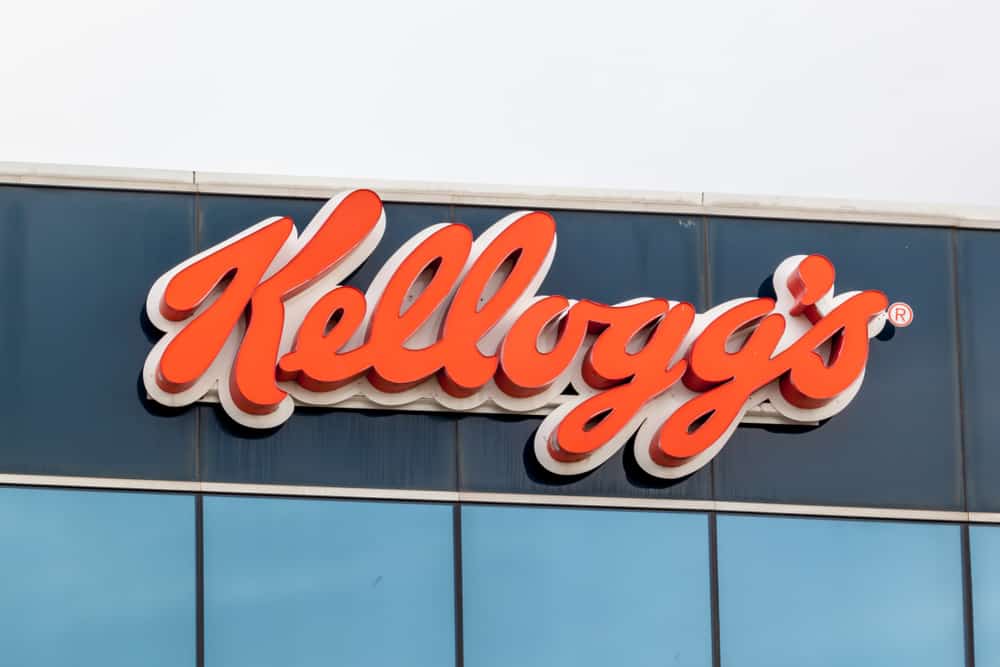
With all the harvesting of grains and production of paper and plastic for packing, Kellogg’s uses a lot of resources to make their products. To address this, the company has announced several sustainability and wellness goals. To reduce waste, they are working towards 100% reusable, recyclable, or compostable packaging by the end of 2025. To reduce emissions, they’ve committed to sourcing 100% renewable electricity by 2050. And to eliminate world hunger, they aim to feed 375 million people in need with food donations and child feeding programs.
Kellogg’s has had a foundation for a long time

Today, it’s rare to find a major corporation that doesn’t have some sort of charitable foundation, but Kellogg’s has been doing this for nearly 100 years, as they established the W.K. Kellogg Foundation back in 1930. In Kellogg’s own words, the foundation’s mission is “…administering funds for the promotion of the welfare, comfort, health, education, feeding, clothing, sheltering and safeguarding of children and youth, directly or indirectly, without regard to sex, race, creed or nationality.…” Due to the dedication of its founder, Kellogg’s now has one of the world’s largest private foundations, which supports children in the U.S., Mexico, and Haiti.

Tell Us What You Think